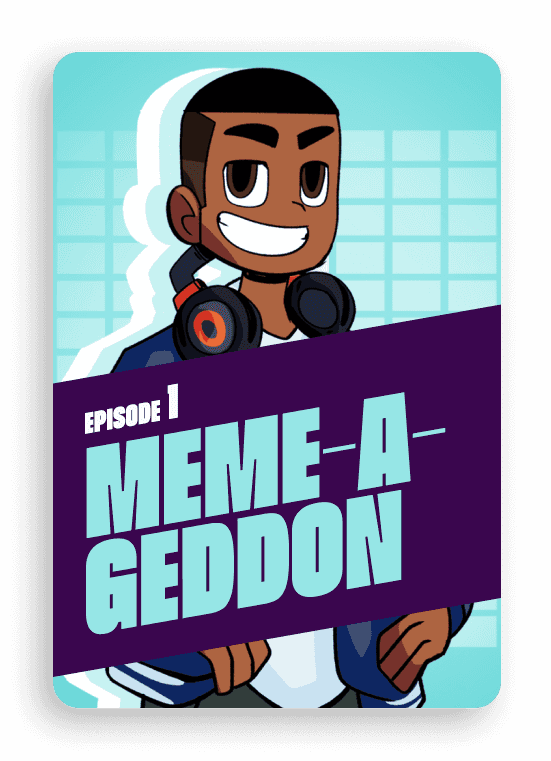A blockbuster film release throws our group of friends into the mad world of online fandom, banter and cyberbullying. A fun first episode to teach your child the importance of respecting opinions, showing that banter can boil over into something far worse, and what hate speech can look like.
Give your kids the skills
- To understand the difference between online banter, cyberbullying and hate speech.
- To respect other people’s views, even when they differ from their own.
- To recognise the real dangers of online hate and the impact it can have on well-being and mental health.
- To report hate speech and talk to a trusted adult for support.
- Take positive action to support those affected by hate speech.
The wonderful and the worrisome
50%
of 8-17 year olds have reported a mean comment or post about someone else to an online provider in the past year.
Source: UK Safer Internet Centre: Safer Internet Day 2024 Report
3 in 10
of all 8-17 year olds (31%) have experienced bullying via communications technology, which is higher than those experiencing face-to-face bullying (>2 in 10, or 18%)
Source: Ofcom, Children and Parents: Media Use and Attitudes Report, April 2024
40%
of 15 year olds say they sometimes notice a negative change in their mental well-being when they have been on social media.
Source: UK Safer Internet Centre: Safer Internet Day 2024 Report
Some simple ways to support your child
Kids can find it tough to talk about cyberbullying, so it’s important to look out for warning signs like stopping using their devices suddenly or becoming sad, withdrawn, or angry.
If you do find out your child is being cyberbullied, there are some simple things you can do to help.
- Stay calm, ask open questions and listen without judgement. Some children might not want to talk to a parent, so it’s also important to offer them alternatives, such as a school councillor.
Discuss the option to block or unfriend the person that caused them hurt. Revisit what it means to be a friend and talk about healthy online relationships. - Don’t confiscate their devices unless they ask you to, it’s likely to increase feelings of anger and isolation and they may feel reluctant to open up in the future.
If you and your child are having problems with cyberbullying and need help on how to deal with it go to Internet Matters: Deal with cyberbullying
